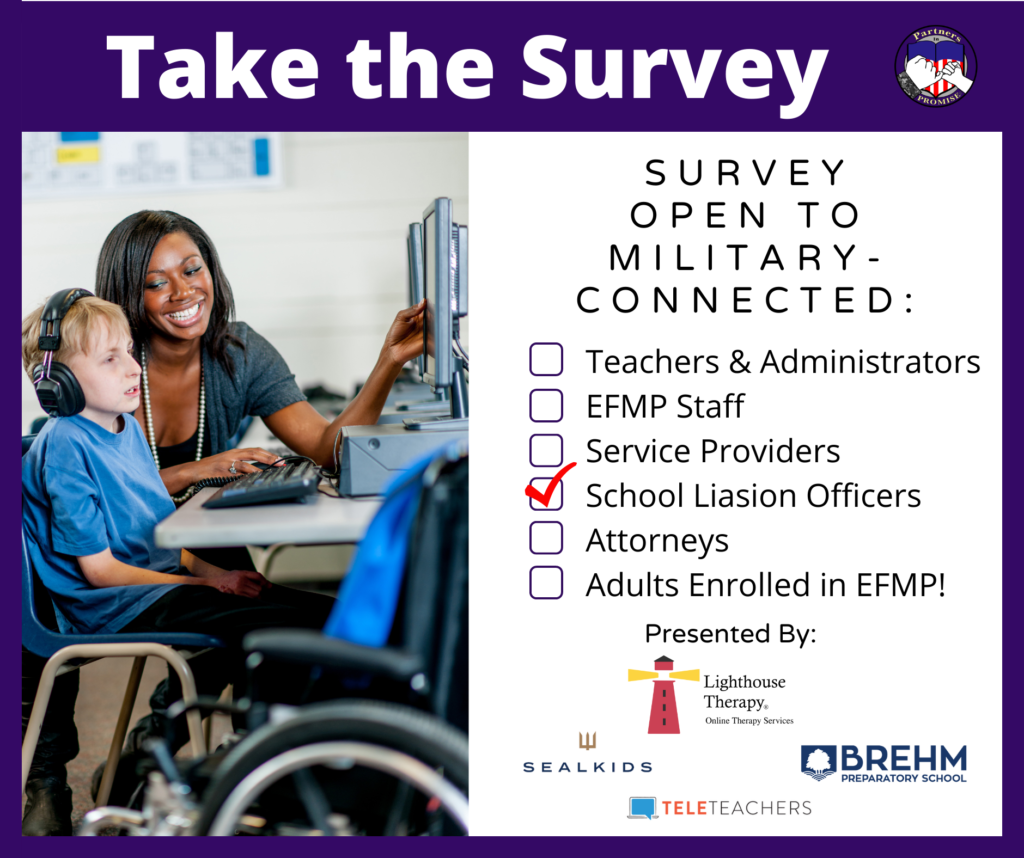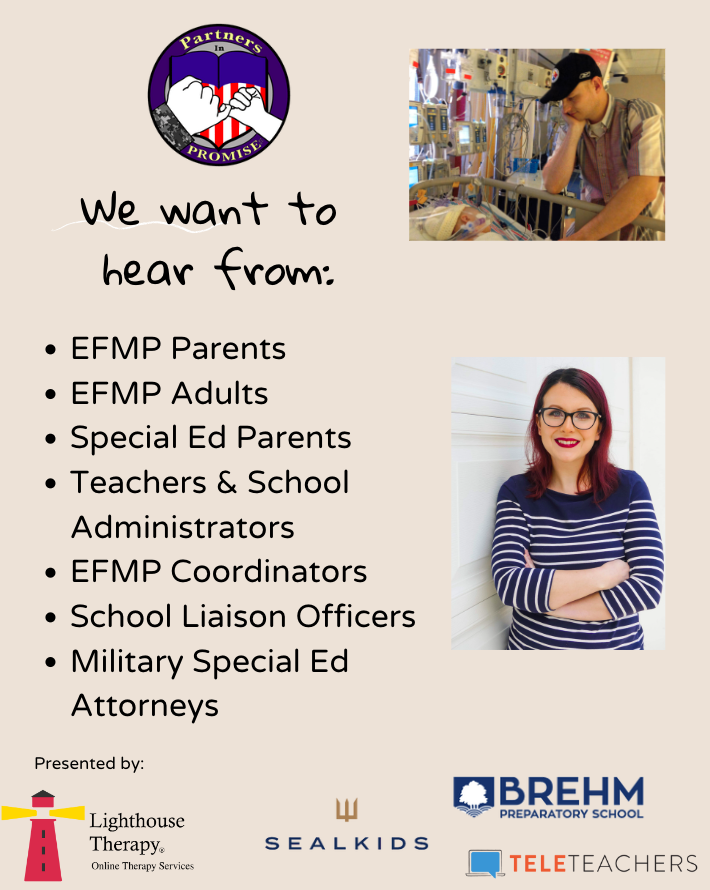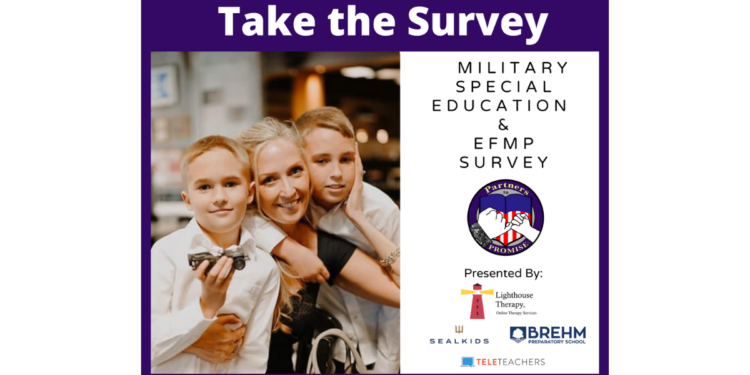Partners in PROMISE seeks feedback from families and providers.
After a military family takes a survey, they may just keep scrolling and forget all about it. But today their stories are what got me out of bed. I had to appear in court at 6 a.m. I needed to testify on behalf of Partners in PROMISE in support of a military family whose child is enrolled in special education.
Being asked to testify about Partners in PROMISE’s survey findings was an honor and I hope that the judge learned a little bit about what military families enrolled in the Exceptional Family Member Program (EFMP) go through as they move every two to three years. But more than that, I hope that our own community hears these stories and that our families continue to share them by taking our annual survey (open now through Oct. 7, 2022).

We know military students move a lot, causing disruptions to their social and emotional lives. But we don’t always talk about the impact these moves have on their continuity of medical care and educational progress. We talk even less about how disruptions are exacerbated for students in special education.
I joined Partners in PROMISE in March 2020 after having interviewed its founder Michelle Norman in my role as a freelance military family reporter and researcher. I volunteered to join the organization because I saw that families like mine were struggling. Their struggles were beyond what I had experienced, the familiar military family stories of not finding rewarding military spouse employment or a lack of connection to the local community. What should have been easy for these families was hard, if not impossible. They simply wanted their children to be able to access education like everyone else.
And no one was telling their stories but them.
And it’s no wonder they felt like they were shouting into the void. As a community, they are drowning. When I move to a new location, I need to call ONE doctor and TRICARE. For parents of medically complex children, there are countless appointments to book, files to transfer, day-long calls for referrals and arrangements to make. This does not even consider the educational meetings required for those whose children are served in the special education system or the time it takes to resolve issues in a new location when they do not go as planned.
Our 2021 survey data helped put numbers around one of these experiences. For instance, if parents feel their child is not receiving a free and appropriate public education, they are told the only recourse is to file a legal complaint. This is a costly and time-consuming process that even when it has a positive outcome leaves military families feeling like they have lost: emotional health, financial resources and educational progress. While our survey showed that only 20% of military families have ever filed a complaint, of those who did not file 74% cited having a reason to file but chose not to. The primary reason they did not file was because they “didn’t think filing a claim would help” (22%).
That is why Partners in PROMISE’s annual survey is so important. Families who may never meet with a legislator or military official can take 10 minutes to share their story once their child is in bed and they can take a breath.
Now Open to Military Officials & Educators

Partners in PROMISE is a nonprofit dedicated to Protecting the Rights Of Military children In Special Education (P.R.O.M.I.S.E.). But we know that there is more than one side to every story. This year we want to learn more about the difficulties faced by those who serve our special ed students. Our 2022 survey is open to:
- Special/Gen Ed teachers,
- Military EFMP Coordinators
- School Liaison Officers
- Adults enrolled in EFMP and more.
If we can understand their struggles, we can help formulate well-rounded solutions that benefit them AND our families.
“We are excited to deep-dive to a level of research that I believe has not been conducted before on our EFMP community,” said Founder and Executive Director Michelle Norman. “Not only will this survey provide our community key insights on how to refine critical resources and programming for exceptional military families, but it will also help decision-makers shape the framework of a holistic system that can better serve EFMP families.”
And civilians are listening and helping us tell our military family stories. This year is our second year partnering with The Ohio State University. Dr. Amy Shuman, our lead researcher from OSU, is a research-based storyteller. Dr. Shuman is a professor in the English department specializing in folklore, narrative, critical theory and the author of books and articles on disability, conversational narrative, literacy, political asylum, food customs, feminist theory, and critical theory. By partnering with a well-respected civilian institution like OSU, we hope to bridge the civilian-military gap.
While I sat on the Zoom court call, I watched a dad in uniform listen to court officials talk about his military child. We were there to talk about one military kid, but if our survey data is any indication there are a large number not having their day in court. For anyone wondering if they should bother taking a survey, my answer is yes. Partners in PROMISE is proud to share your stories in articles, with military leaders and even in court, in the hopes that one day the military families that come behind you won’t have to.








